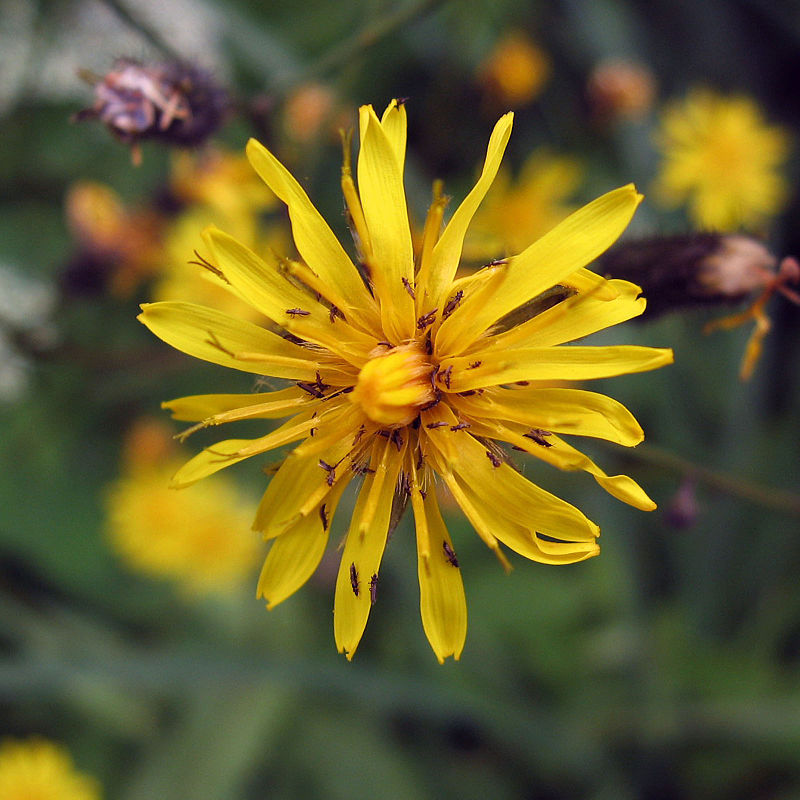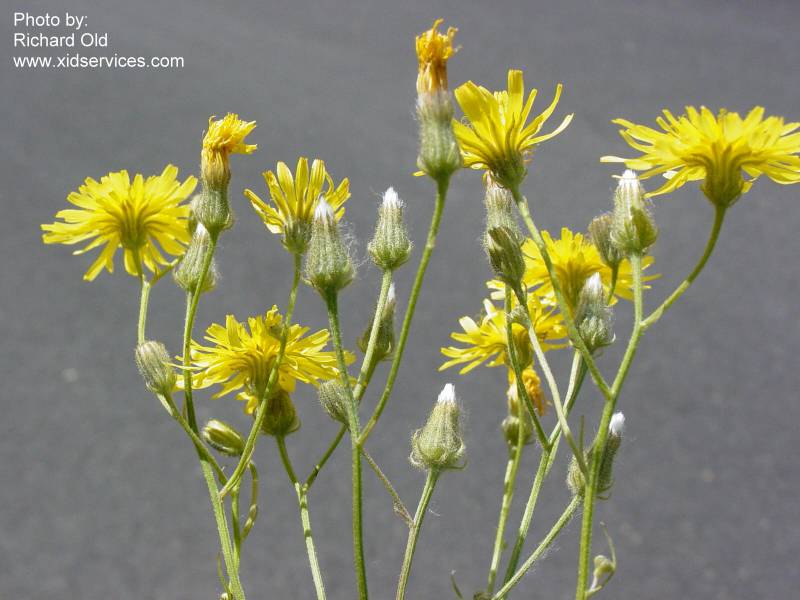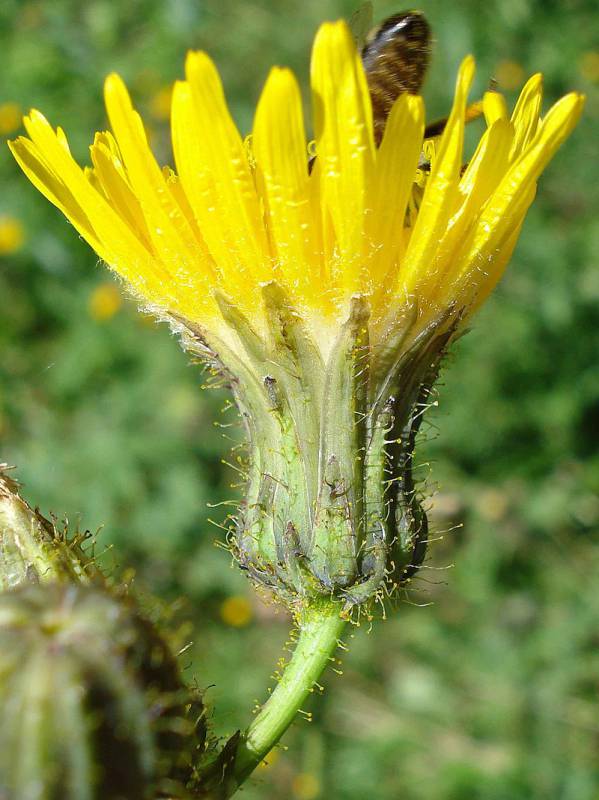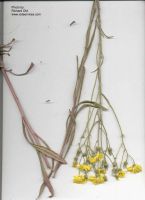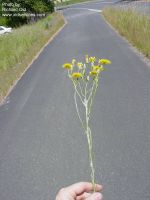Distribution: Occurring in scattered locations on both sides of the Cascades crest in Washington; Alaska to California, east across the northern regions of the U.S. and Canada to the Atlantic Coast.
Habitat: Roadsides, fields, ditches, wastelots, and other disturbed, open areas.
Flowers: June-August
Origin: Introduced from Europe
Growth Duration: Annual
Conservation Status: Not of concern
Pollination: Bumblebees, bees, butterflies, flies, beetles, wasps, apomixis?
Glabrous annual, 1-10 dm. tall, with milky juice.
Basal leaves petiolate, the blade lanceolate or oblanceolate, finely toothed to pinnately parted, up to 15 cm. long and 4 cm. wide; reduced cauline leaves sessile and auriculate, linear, often involute.
Heads several to numerous, 30-70 flowered; involucre 6-9 mm. high, its inner bracts 12-15, with fine hairs and sometimes with stalked glands as well, the outer bracts about one-third as long; corollas all ligulate, yellow.
Achenes 2.5-4.5 mm. long, dark reddish-brown, spindle-shaped, with 10 ribs.
Publication: Sp. Pl. 2: 807. 1753.
PNW Herbaria: Specimen records of Crepis tectorum in the Consortium of Pacific Northwest Herbaria database
WA Flora Checklist: Crepis tectorum checklist entry
OregonFlora: Crepis tectorum information
E-Flora BC: Crepis tectorum atlas page
CalPhotos: Crepis tectorum photos

